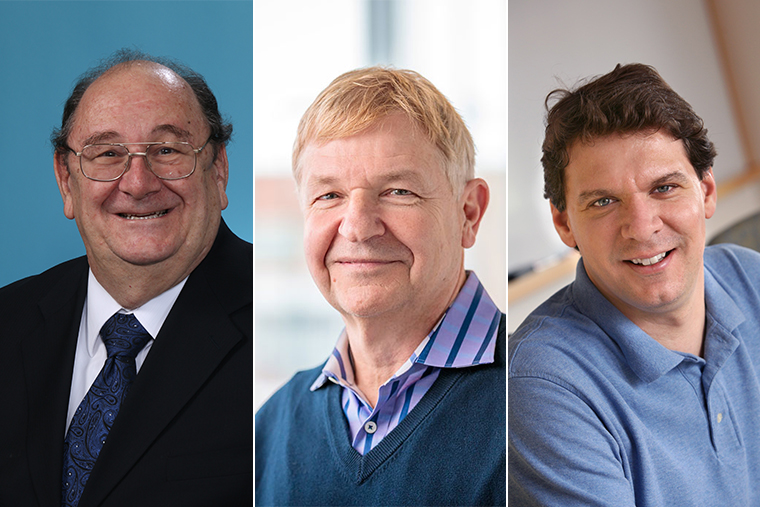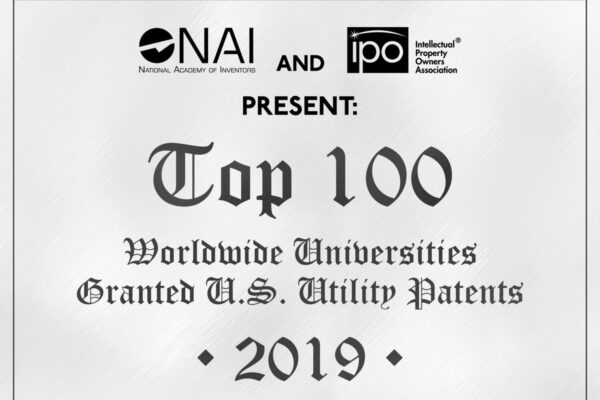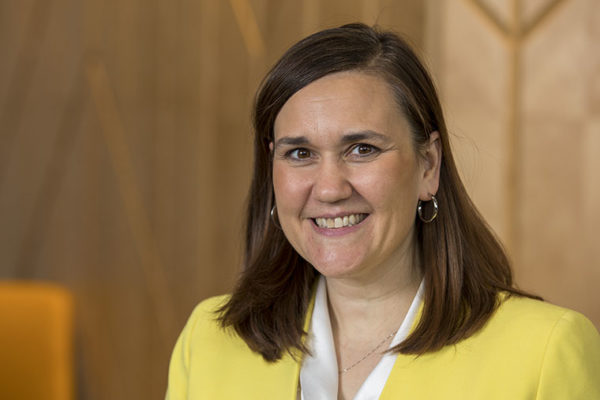The National Academy of Inventors has elected three faculty members from Washington University in St. Louis to its 2021 cohort of fellows: Psychiatry professor Douglas F. Covey, geneticist Jeffrey Milbrandt, MD, PhD, both at the School of Medicine; and bioengineer Daniel Moran, at the McKelvey School of Engineering.
The NAI fellowship is the highest professional distinction reserved solely for academic inventors.
“Washington University faculty receive a multitude of accolades and awards celebrating their research and its impacts,” said Nichole Mercier, assistant vice chancellor and managing director of the Office of Technology Management.
“The honor of fellow, bestowed by the National Academy of Inventors, specifically recognizes another dimension of the impact of their research: inventorship. We are grateful for our faculties’ contributions to the world as well as their daily work to foster a culture of innovation at the university.”
Covey, Milbrandt and Moran join 13 other Washington University faculty members who have been named fellows since the fellowship program began in 2012. In all, there are 1,403 NAI fellows across 250 universities, governmental and nonprofit research institutions; they collectively hold nearly 43,000 patents.
New fellows will be formally inducted at the academy’s annual meeting in June in Phoenix.
Douglas F. Covey
Covey, the Andrew C. and Barbara B. Taylor Distinguished Professor of Psychiatry at the School of Medicine, is a world leader in the development of synthetic neuroactive steroids.
A specialist in the chemistry and biology of steroids, Covey has spent years synthesizing and developing neuroactive steroid molecules. He studies how they work as anesthetics and analgesics and, in recent years, has been evaluating the molecules for their potential to treat neurodegeneration and psychiatric illnesses, particularly clinical depression. The compounds Covey has been developing eventually may help psychiatric patients for whom current therapies don’t work.
His laboratory also has developed methods to determine the ways that neurosteroid molecules bind to proteins on nerve cells and other types of cells in the central nervous system. In addition to helping patients with depression, various molecules Covey has developed have shown promise as potential therapies for epilepsy and essential tremor.
Covey is a co-founder of SAGE Therapeutics, a company that is working to bring some of those compounds into clinical use. His work helped spur a collaboration between SAGE and Washington University to discover, develop and study neurosteroids. Much of that work is through the Taylor Family Institute for Innovative Psychiatric Research, an effort that supports research collaborations between several departments at the School of Medicine, including psychiatry, anesthesiology, developmental biology, radiology, neurology and medicine.
Covey and other scientists involved with the institute have developed sophisticated tools to study how neurosteroids alter brain function and play a role in regulating cognition, emotion and motivation.
He earned his bachelor’s degree in chemistry in 1967 from Loyola College in Baltimore. He went on to earn master’s and doctoral degrees in chemistry from Johns Hopkins University and joined the Washington University faculty in 1977.
Jeffrey Milbrandt
Milbrandt, the James S. McDonnell Professor and head of the Department of Genetics, is being recognized for his contributions to the development of therapies to address neurodegeneration. His work has identified a family of growth factors that improve nerve cell survival and molecular pathways that lead axons to self-destruct due to disease or injury. Axons are the wiring of the nervous system, transmitting electrical impulses between nerve cells.
Milbrandt, also executive director of the McDonnell Genome Institute, and his colleagues have found that these pathways are activated in many neurodegenerative disorders, including conditions as diverse as peripheral neuropathy, glaucoma, traumatic brain injury, multiple sclerosis, amyotrophic lateral sclerosis (ALS) and Parkinson’s disease. Milbrandt’s work has identified therapies that block these destructive pathways, leaving axons intact and maintaining their capacity to transmit electrical signals.
Milbrandt and his colleagues found a common thread in these disorders — that a molecule called SARM1 was the “central executioner” in eliminating damaged or diseased axons. This protein destroys axons by draining them of the fuel they need to stay healthy and carry out their functions. By blocking SARM1 in patients with neurodegenerative diseases, the expectation is that the nervous system’s wiring will remain intact and that this will lead to improved quality of life.
Milbrandt co-founded a startup company, Disarm Therapeutics, to help develop new therapies based on blocking SARM1 activity to stop axons from self-destructing. Disarm was acquired by Eli Lilly and Co. in 2020 to help speed the development and clinical testing of these new therapeutics for neurodegenerative diseases.
Milbrandt, also professor of pathology and immunology, of medicine and of neurology, earned his medical degree from Washington University School of Medicine and later earned a doctoral degree in biochemistry from the University of Virginia, Charlottesville, where he also completed his residency in pathology. He joined the Washington University faculty in 1983.
Daniel Moran
Moran, director of undergraduate studies and professor in the Department of Biomedical Engineering, is being celebrated for his pioneering work surrounding neuroprosthetics and neurostimulation to treat disease.
Notably, Moran and collaborator Eric Leuthardt, MD, professor of neurosurgery at the School of Medicine, developed a first-of-its kind device that helps people disabled by stroke regain significant control over their arm and hand function using their minds.
The FDA this spring granted market authorization to the device, IpsiHand Upper Extremity Rehabilitation System, which was developed by Neurolutions Inc., a startup Moran co-founded in 2008.
Neurolutions is one of four startups co-founded by Moran and Leuthardt, most based on patents developed at WashU.
In 2012, he co-founded OsteoVantage, which is developing next-generation spinal instrumentation aimed at helping people who suffer from decreased mobility and pain due to back injuries and degenerative diseases. In 2017, Moran co-founded Inner Cosmos to treat neurological diseases using electrical brain stimulation devices.
In 2020, he co-founded Sympel Therapeutics, which is developing a minimally invasive stimulation technology aimed at the sympathetic nervous chain. This emerging technology will help treat diseases as varied as asthma, hypertension and chronic pain.
In all, Moran has been granted nine patents and has a half-dozen additional patents pending.
Moran earned his bachelor’s degree in biomedical engineering from the Milwaukee School of Engineering and his PhD from Arizona State University. He worked as a research consultant, designing computer simulations for accident reconstruction, and then spent six years at the Neurosciences Institute before joining Washington University in 2001.
Moran is a senior member of the Institute of Electrical and Electronics Engineers and was elected to the 2016 College of Fellows of the American Institute for Medical and Biological Engineering, which represents the top 2% of medical and biological engineers in the country.



